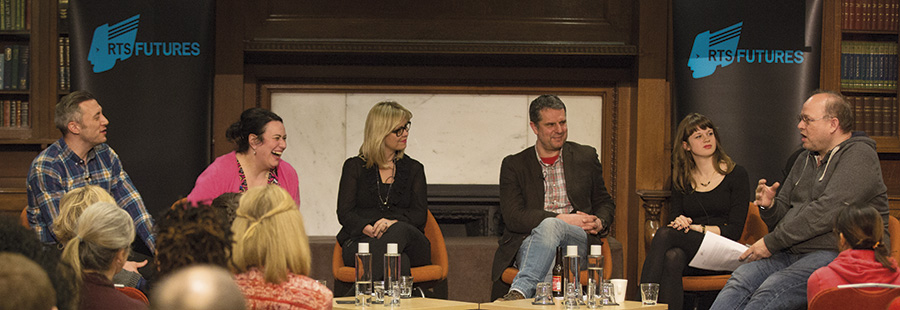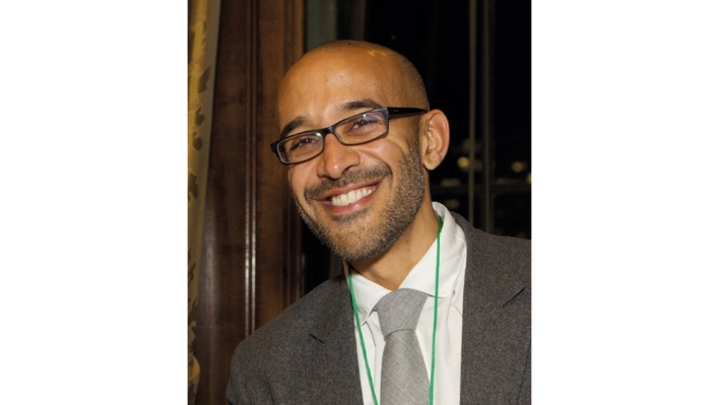Class is less the barrier to getting on in TV than it was
The latest RTS Futures event offered sage advice to a young and eager audience on how to climb TV's greasy pole, rising from a lowly runner to superstar status.
"Does it take talent, hard work, luck or good looks?" asked Broadcast magazine columnist and entertainment producer Steven D Wright, who chaired a five-strong panel of execs at the central Londonevent. "Or," he asked, "is it class?"
Television is frequently accused of being too posh, but the panel were united in the belief that, while this may once have been true, the industry is now more inclusive.

ITV Commissioning Editor, Comedy Entertainment, Claire Zolkwer, who has green-lit hit shows such as Celebrity Juice and The Only Way Is Essex, described herself as an "upstart Scot". She was adamant that television "is not a closed shop".
Sky Commissioning Editor Jon Mountague added: "Not so long ago, TV was populated by posh people, but the people who work in television need to reflect the audience and I think TV is waking up to that."
Wright came relatively late to television, at the age of 27. He had worked as a journalist but also "in a number of shit jobs". These included time spent in an operating theatre and a stint as a holiday rep.
He landed his first TV job in the early 1990s, working on Planet 24's late-night show for Channel 4, The Word.
Immediately, Wright knew, he stood out from the posh kids working around him, but he reckoned this worked to his advantage. "It was all about looks; it was all public school boys. It was golden youth, basically, and I was this fat c*** that came in and shone immediately for one good reason – I watched telly.
"That rule still stands: if you don't go home at night and watch telly, you shouldn't be working in TV," he said.
Sabina Smitham, a producer at online content creator and distributor Channel Flip and the youngster on the panel, admitted to confusion about her own class – and whether it worked for or against a person.
"If you don't go home at night and watch telly, you shouldn't be working in TV"
"When I started applying for TV jobs," she said, "some people advised me to lose Oxford [University] from my CV because it was going to work against me."
Smitham's first foray into TV came with a four-week work experience placement on a show she loved, Channel 4's Come Dine with Me.
"That stood me in really good stead because it's such a solid format; it's travelled around the world and everyone wants a piece of it," she recalled.
Smitham then landed a place on the graduate trainee scheme at FremantleMedia, a company that owns a lot of entertainment formats.
Once newbies have secured a low-level telly job, such as runner or researcher, they have to shine if they want to move on. "You have to get yourself noticed, although not in an overly pushy way because that's really annoying," warned David Clews, who won a Bafta craft award for directing Channel 4's Educating Essex.
"I see in the office the ones who are really good at it: talking to the right series producers, befriending the production managers and talking to the co-ordinators of different projects," he added.
Networking is the key, reckoned Smitham, adding that "it's really important to make friends at your level [because] you will grow up in the industry together".
"Most people in telly, especially if they've been through a tough regime, are friendly and open."
"Don't be in a rush," advised Torie Chilcott, co-founder of digital marketing outfit Rockabox and a former TV producer and format developer, who, at FremantleMedia, created the Bafta-nominated The Farmer Wants a Wife for ITV.
"If you're a researcher, be a really good researcher, learn your skills and work hard," she said.
Chilcott recommended building from an "eclectic base", gaining experience in a number of genres and working out where to specialise. Equally, it was important not to move endlessly from genre to genre, she said.
Working as an assistant producer on Jim Davidson's Generation Game, Mountague suddenly realised that he didn't want to work on the show or in the entertainment genre. "I'd drifted into an area that I didn't want to be in," he recalled.
Mountague became "single-minded about wanting to work in scripted comedy. That was what I was a fan of, as a viewer and as a kid growing up."
Since his epiphany, the Sky commissioner has worked on Johnny Vegas's BBC sitcom Ideal and is currently responsible for Sky 1 comedies Stella and Trollied.
Fortunately for today's hopefuls, the TV industry is a more welcoming, nicer place than it once was.
One indie he worked with was a "brutal, sink or swim" environment, recalled Wright.
"It was so horrible that I've spent the rest of my career helping everybody," he said. "You don't have to humiliate people; you can actually be nice. Most people in telly, especially if they've been through a tough regime, are friendly and open."
'From runner to superstar' was an RTSFutures event held at the Hallam Conference Centre in central London on 24 February. The producers were Lisa Campbell, Reem Nouss and Jessica Wilson.
Making opportunities
Torie Chilcott, Rockabox: 'The people who really shine are the ones who are interested and interesting... Know everything because senior people know a lot about TV. They watch a lot of telly, love telly and like talking about telly.'
David Clews, Twofour: 'Being able to [use] a camera helps – everyone expects that now. Can you edit inFinal Cut Pro? Can you work simple graphics packages? Push [your] production company to give you those opportunities.
'Try different things. Lots of young people who come in and start work are so desperate to become an AP [assistant producer] when they've only been a researcher for three weeks – it doesn't help them. They fall away because they don't have the skills.'
Sabina Smitham, Channel Flip: 'Luck... comes into play but, as long as you're working hard and making opportunities for yourself, [success] is not necessarily about good fortune.
'[Treat YouTube as] an opportunity to learn your craft and to share video with potential employers... rather than expecting to be the next [fashion and beauty vlogger] Zoella.
'You shouldn't be scared of taking a sideways step or a step down in the hierarchy, if you're moving into an area that you really want to be in.'
Claire Zolkwer, ITV: 'The role of a mentor is key. Find somebody two or three years on from you and ask them for help with your career... People like to give advice.'
Jon Mountague, Sky: 'One of the baseline skills you need in any genre, at any level, is storytelling. Every genre relies on telling great stories, whether it's current affairs, factual, comedy or drama.'
Steven D Wright, event chair: 'The people you apply to for jobs will notice every mistake. If you do arse lick and say you love their programme, they will test you on it... They're as hard as nails.
'Being cynical is the one thing in telly that people hate. People who don't care about a show are out [the door].
'You have to love what you're doing because it's such a horrible job – no one enjoys working as a runner, because you're treated like dirt. You've got to love the subject in order to get though the day.'







